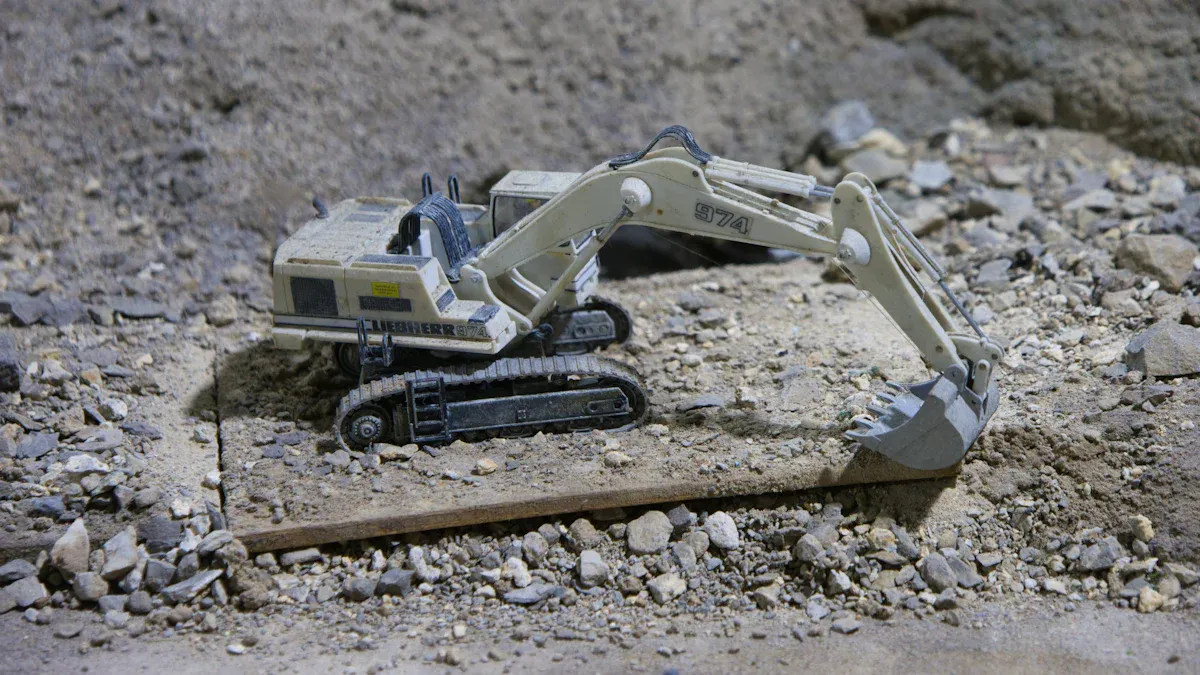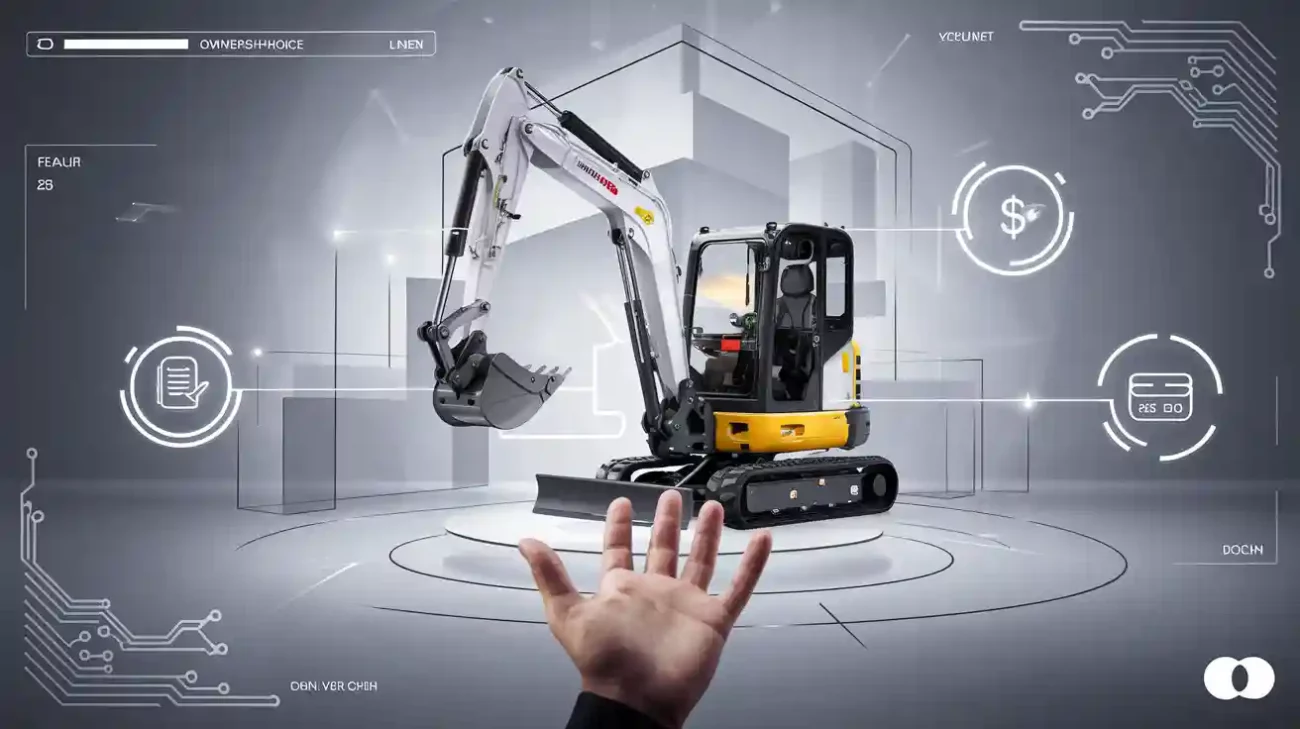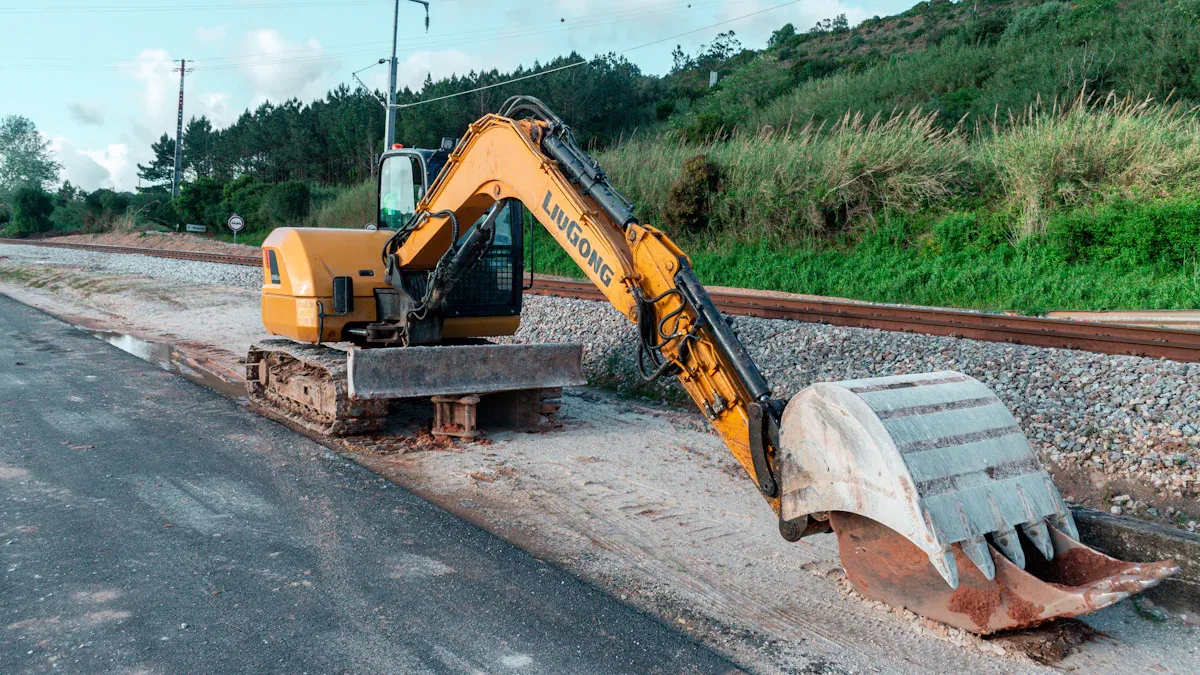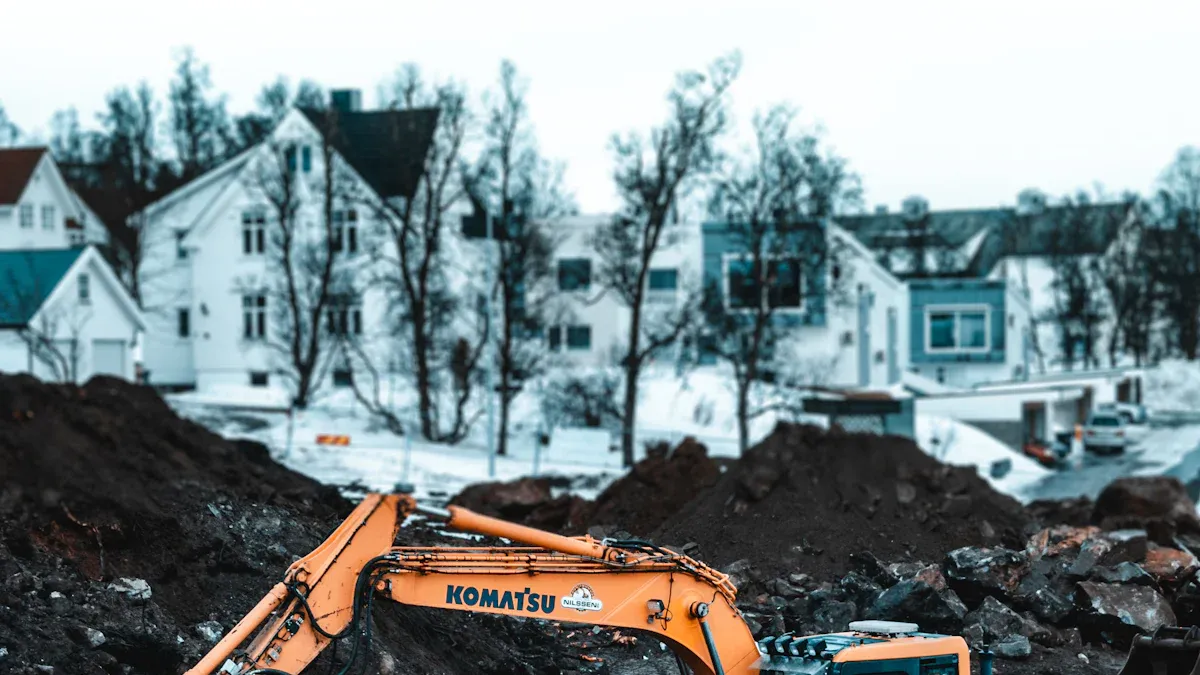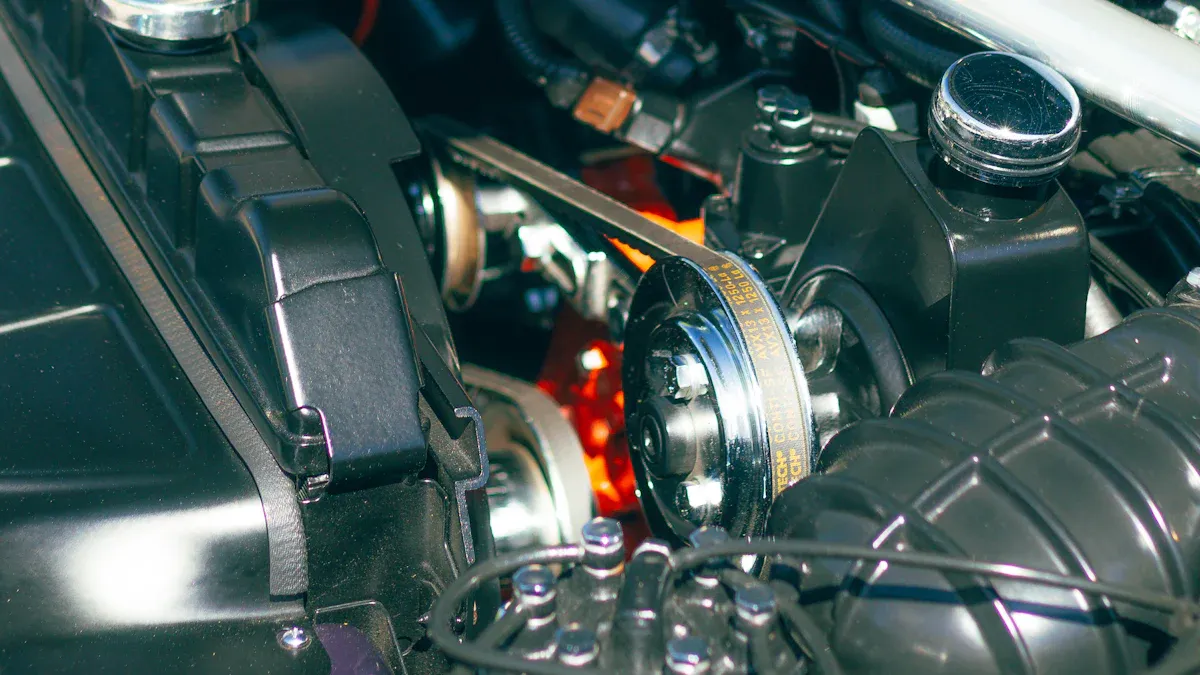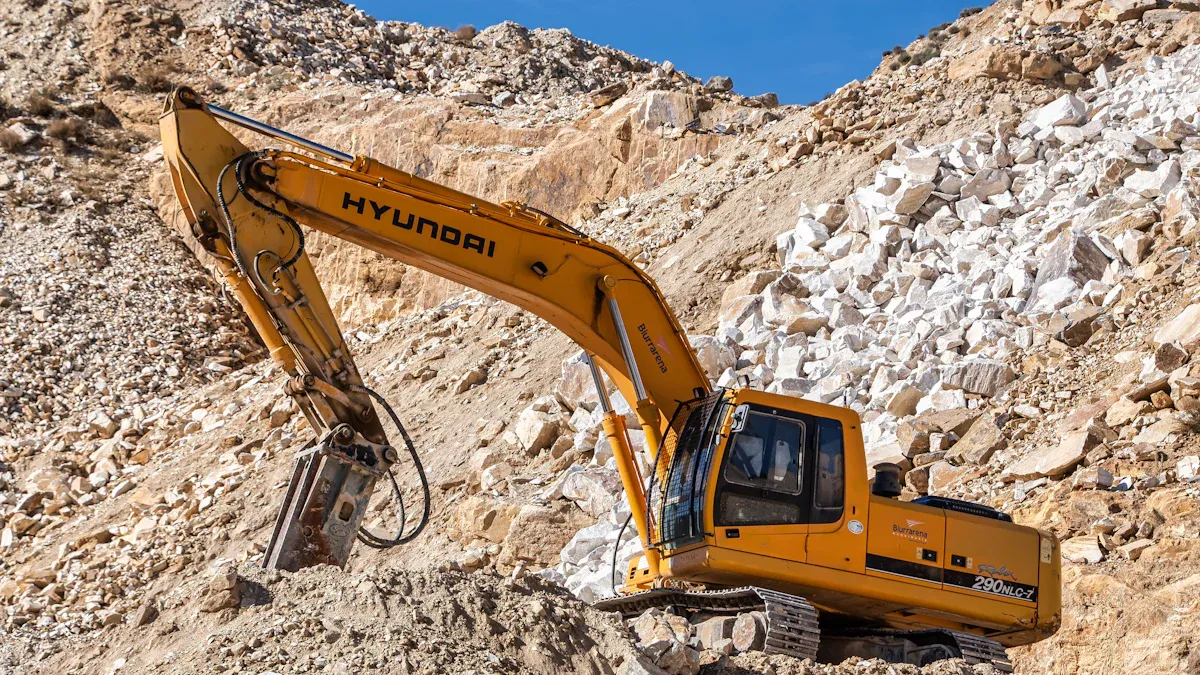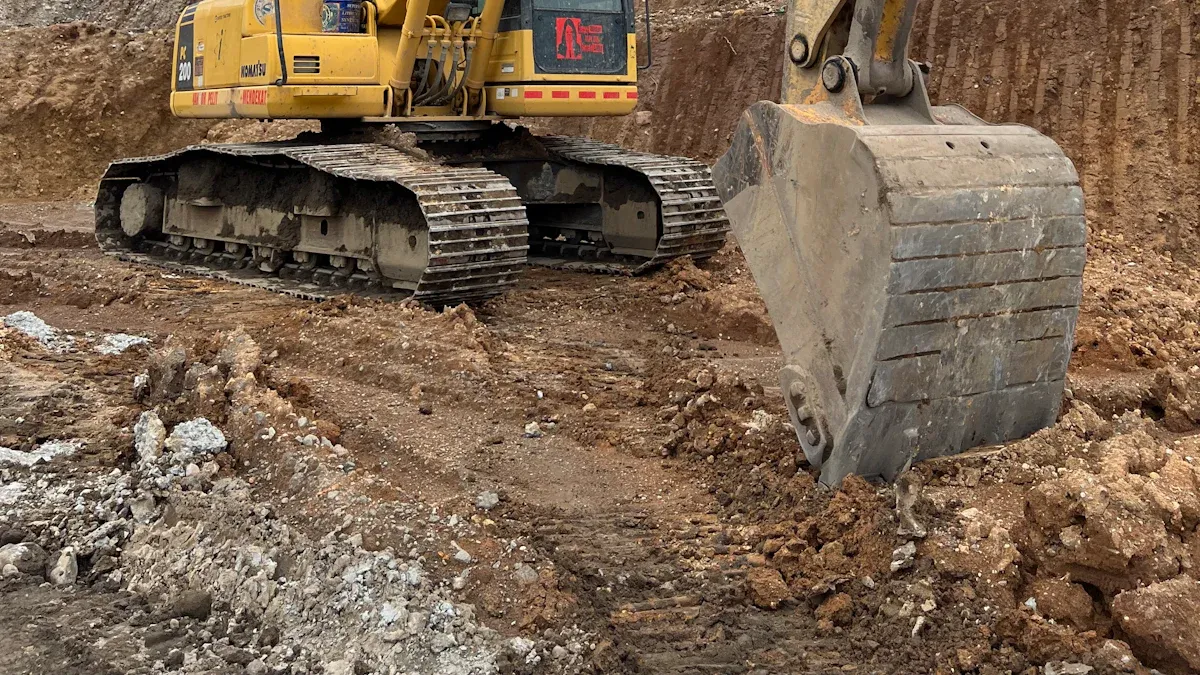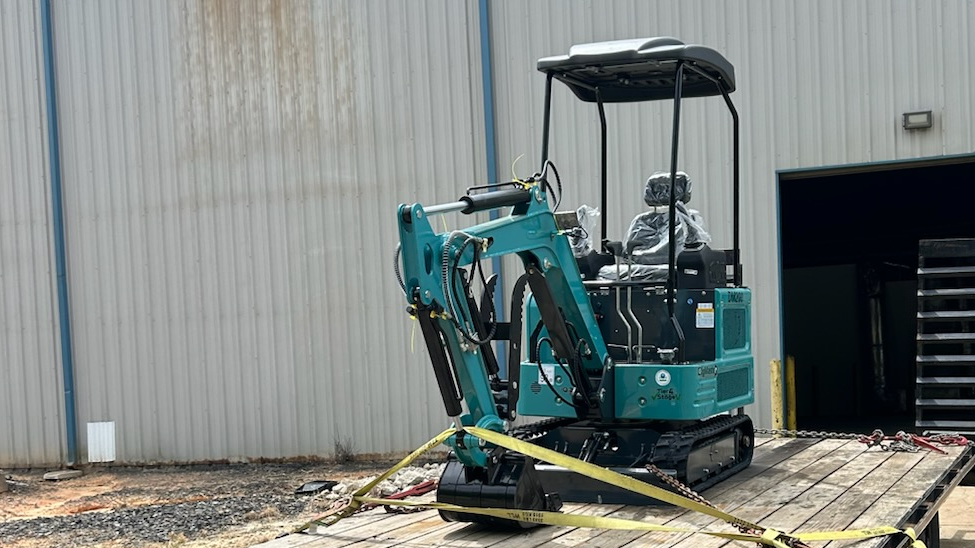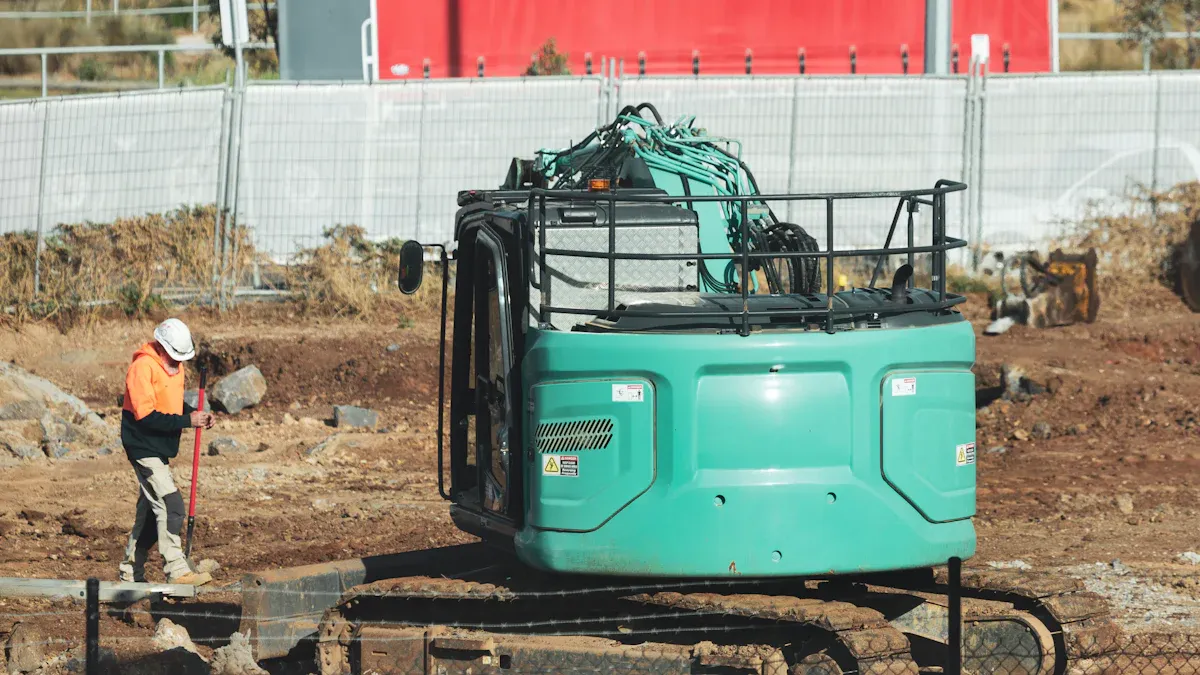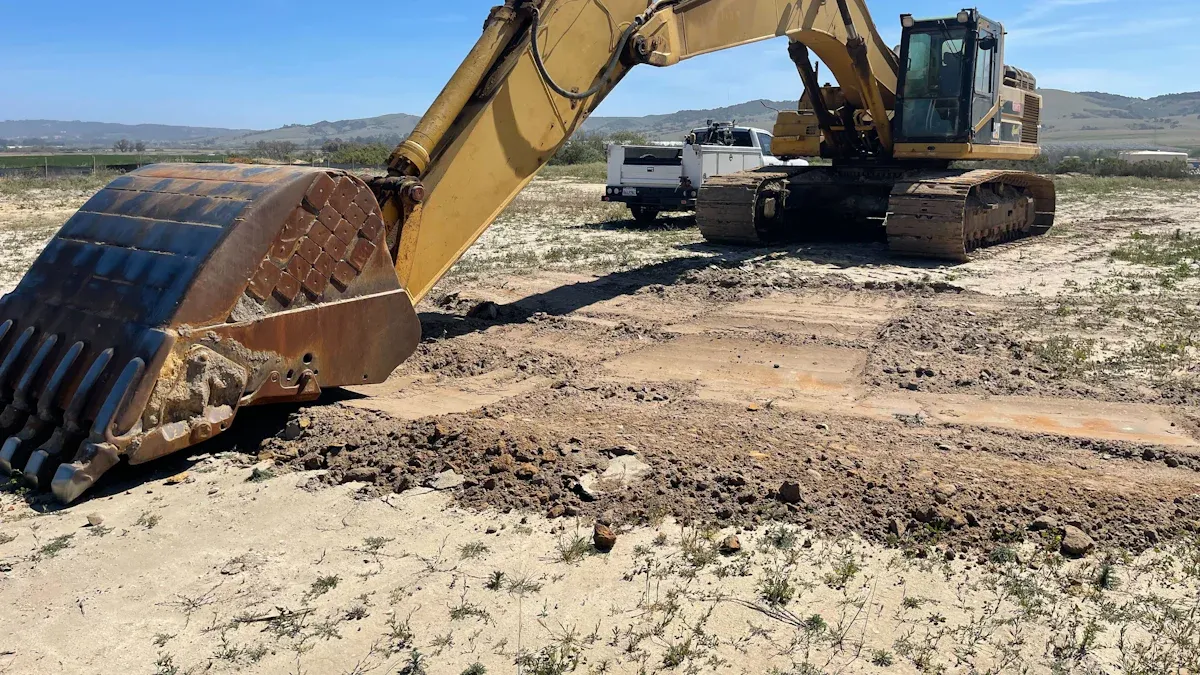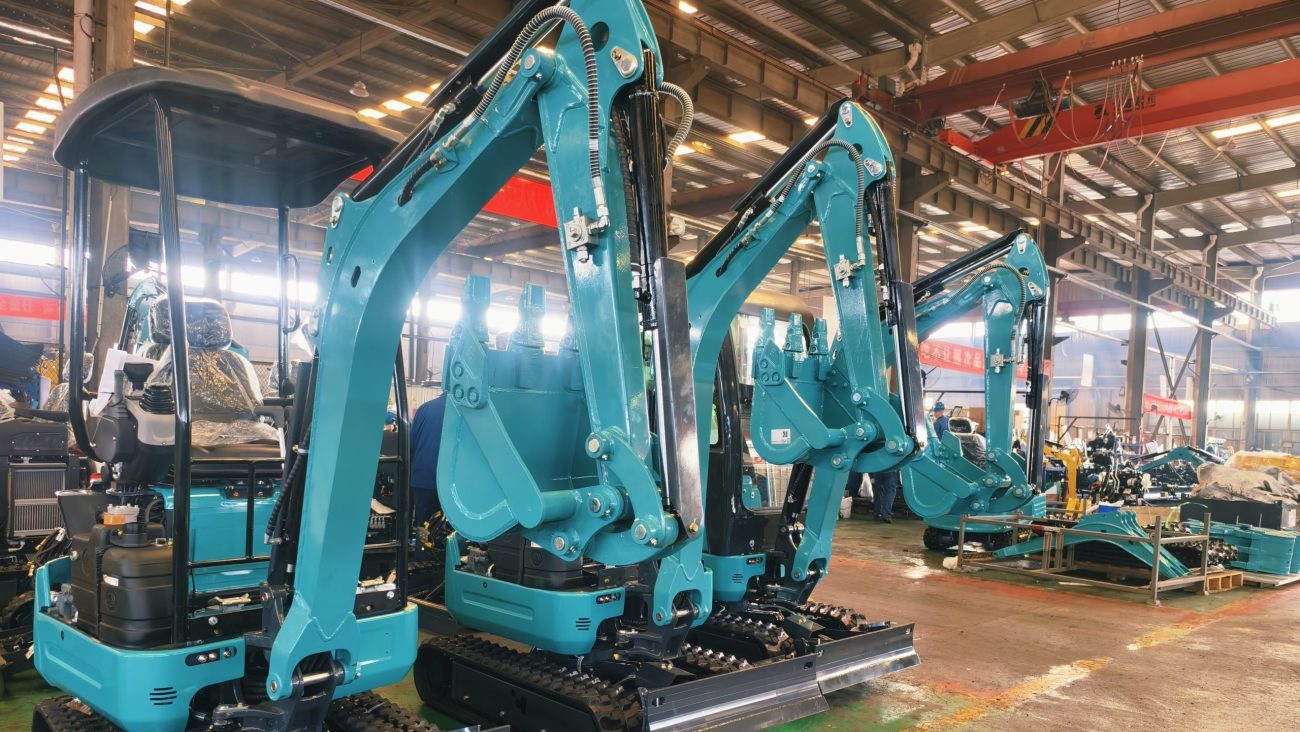You want a clear answer on cheap mini excavator costs for 2025. Here’s what you can expect for price, rental, and operating expenses. New and used compact excavator prices start as low as $10,800 for some brands, with most models falling between $30,500 and $76,000. Rental costs range from $200 to $225 per day, or $1,500 to $2,000 monthly. Operating costs, including fuel and maintenance, add to your total. Use this table and chart for a fast price range comparison:
Category | Price Range (2025) |
|---|---|
Buying (General Range) | |
Buying (Used Hitachi) | Under $10,800 to ~$45,000 |
Rental (Daily) | $200 – $225 per day |
Rental (Monthly) | $1,500 – $2,000 |
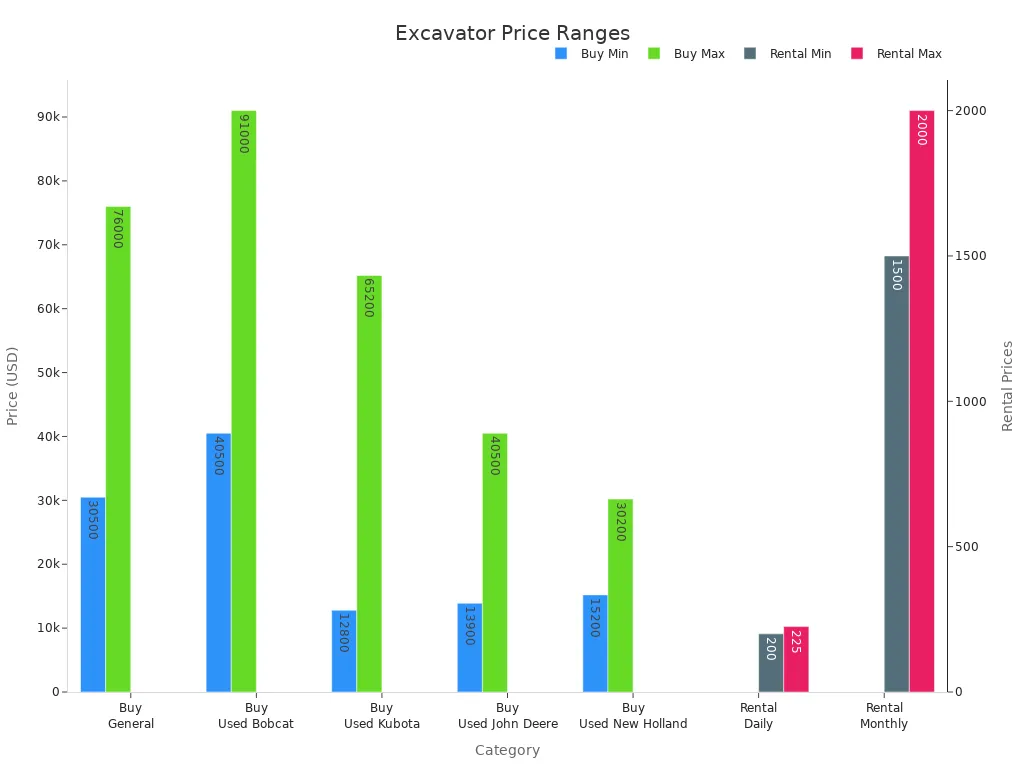
Cheap Mini Excavator Cost Overview
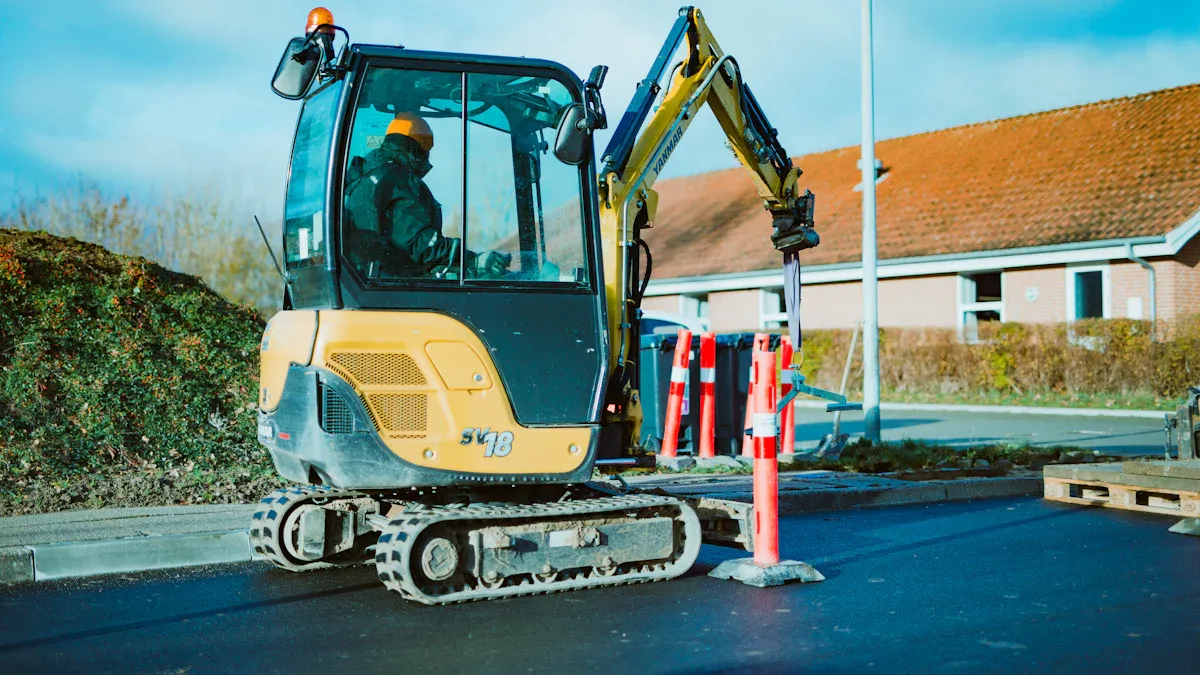
Buying Costs 2025
You want the best deal when you decide to purchase a compact excavator. In 2025, the price for a new mini excavator ranges from $20,000 to $127,734. Most buyers find solid options between $30,000 and $90,000. If you look at used models, you can expect prices from $10,000 to $50,000. These numbers come from trusted market research and industry reports, which use data from suppliers, distributors, and real buyers. This approach ensures you get a reliable excavator price overview.
Excavator Type | New Price Range (2025) | Used Price Range (2025) |
|---|---|---|
Mini Excavators (1-5 tons) | $20,000 – $90,000 | $10,000 – $50,000 |
You can often find a cheap mini excavator at the lower end of these ranges. If you want to save even more, consider a used compact excavator. Many buyers choose used machines for small projects or occasional use. When you compare excavator costs, always check the machine’s hours, condition, and included attachments. These factors affect the final price and long-term value.
Tip: Always ask for maintenance records before you purchase a used mini excavator. This step helps you avoid hidden repair costs.
Renting Costs 2025
Renting a mini excavator gives you flexibility and keeps your upfront costs low. In 2025, rental rates for a compact excavator depend on duration, location, and machine size. Here’s a quick breakdown:
Excavator Size | Daily Rental Rate Range | Weekly Rental Rate Range | Monthly Rental Rate Range |
|---|---|---|---|
Mini Excavator | $800 to $1,500 | $2,000 to $3,000 |
Rental prices can change based on your region and the time of year. Delivery fees usually add $50 to $150 to your total cost. If you need an operator, expect to pay about $40 per hour. Longer rental periods often come with discounts, so weekly or monthly rentals can save you money if your project takes more time.
You should always factor in these extra costs when comparing renting to buying. Many contractors and homeowners choose renting for short-term jobs or when they want to avoid maintenance and storage expenses.
Operating Expenses
Operating a mini excavator comes with ongoing costs. You need to budget for fuel, maintenance, insurance, and labor. Here’s a detailed breakdown of typical hourly operating costs:
Cost Component | Cost per Hour (US$) |
|---|---|
Depreciation | 3.12 |
Interest (10%) | 2.20 |
Insurance (3%) | 0.66 |
Taxes (2%) | 0.44 |
Labor (including social costs) | 3.30 |
Standing Cost Sub-total | 9.72 |
Fuel | 6.24 |
Oil and Grease (10% of fuel cost) | 0.62 |
Servicing and Repairs (1.5 × depreciation) | 4.68 |
Tires | 2.40 |
Other (chains, tighteners) | 0.20 |
Total Operating Cost per Hour | 23.86 |
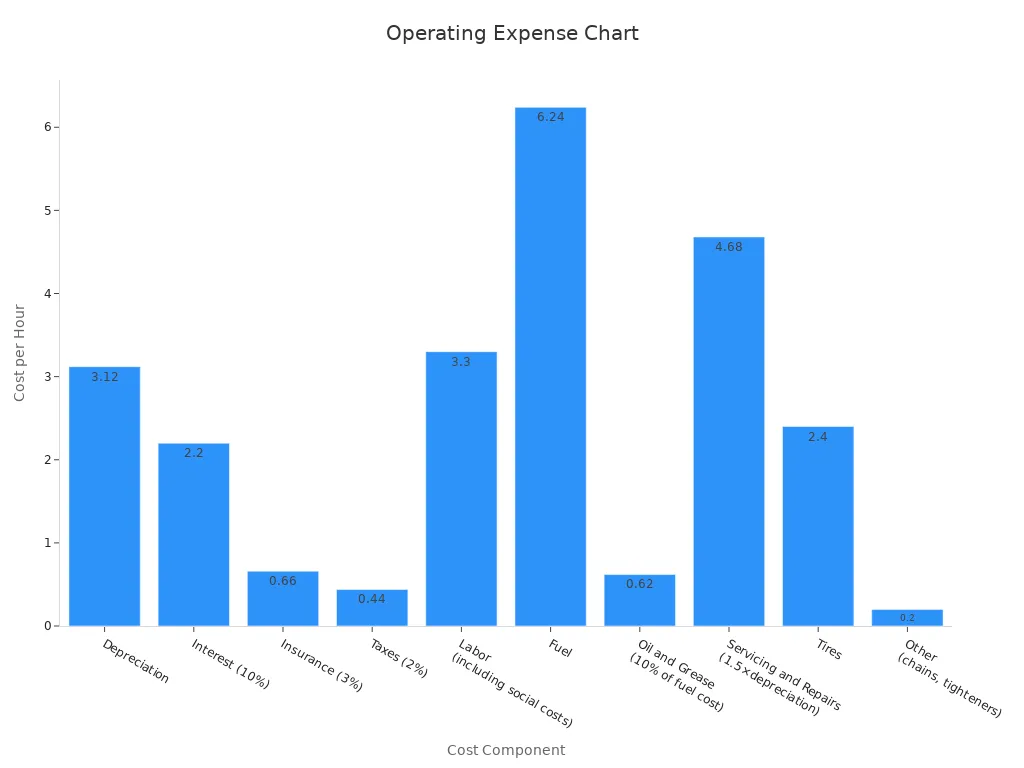
You can expect your total operating costs to average around $24 per hour for a mini excavator. This number includes everything from fuel to repairs. If you hire an operator, add about $33.20 per hour to your project budget. These costs can add up quickly, so always include them in your excavator price overview.
Market research reports, like the ‘Excavators Machine Control System Market Size, & Forecast,’ use interviews, surveys, and data analysis to confirm these cost estimates. This process gives you confidence in your budgeting and helps you avoid surprises.
Quick Cost Comparison Table
Category | Price/Cost Range (2025) |
|---|---|
New Mini Excavator | $20,000 – $127,734 |
Used Mini Excavator | $10,000 – $50,000 |
Rental (Daily) | $300 – $650 |
Rental (Weekly) | $800 – $1,500 |
Rental (Monthly) | $2,000 – $3,000 |
Operating Cost (per hour) | |
Operator (per hour) | $33.20 |
You can use this table to compare buying, renting, and operating costs at a glance. If you want the lowest upfront price, renting often wins. If you plan to use your compact excavator often, buying may save you more in the long run. Always weigh your project needs, budget, and expected usage before you make a final purchase or rental decision.
Buying a Mini Excavator
New vs. Used Prices
You face a big decision when you choose between a new or used mini excavator. New models offer the latest technology, better fuel efficiency, and full warranties. You pay a higher initial purchase price, but you get peace of mind and lower repair costs in the first years. Most new mini excavator prices in 2025 range from $20,000 to $127,734. If you want to save money, consider a used compact excavator. Used prices often fall between $10,000 and $50,000. You can find solid machines at the lower end, especially if you check maintenance records and hours. Used excavators may need more repairs, but you avoid the steepest depreciation. Compare both options and match your choice to your project needs and budget.
Cost Factors
You must look beyond the sticker price when buying an excavator. The total cost of ownership includes more than just the initial purchase price. Maintenance, depreciation, resale value, and even transportation all affect your bottom line. The table below shows how different models and features impact your costs:
Factor/Model | Bobcat E10 | Bobcat E85 | Additional Cost Factors and Considerations |
|---|---|---|---|
Operating Weight | 2,593 lbs | 18,977 lbs | Total cost of ownership includes purchase price, maintenance, depreciation |
Max Dig Depth | 6 ft | 15.5 ft | Resale value impacts long-term cost effectiveness |
Bucket Digging Force | 1,865 lbf | 16,269 lbf | Rental vs purchase decisions depend on workload and usage frequency |
CDL Requirement | Exempt (under 10,000 lbs) | Required (over 10,000 lbs) | CDL considerations influence model choice and associated costs |
Tip: Attachments and auxiliary hydraulics add versatility, but they also increase your total ownership cost. Always factor in these extras when you compare excavator costs.
Financing Options
You do not have to pay the full price upfront when you buy a mini excavator. Many dealers offer flexible financing plans. For example, CASE Construction Equipment provides 0% financing for up to 84 months on select models in 2025. If you buy a mini excavator with a price of C$107,575.00, you might only need a down payment of C$10,757.50. The rest can be financed at 0% interest, with equal monthly payments over seven years. This option lets you spread out your costs and keep more cash for your business. Always check the terms, approval requirements, and any special offers before you sign a purchase agreement.
Financing makes buying a mini excavator more affordable and helps you manage your cash flow. Take advantage of low-interest or zero-interest deals to reduce your total cost of ownership.
Mini Excavator Rental Costs
Rates by Duration
You want to control your project budget. Understanding mini excavator rental rates helps you make smart choices. Daily excavator rental rates usually start at $300 and can reach $650. If you need the machine for a week, expect to pay between $800 and $1,500. Monthly excavator rental costs often range from $2,000 to $3,000. These prices give you flexibility. You can match the rental period to your project timeline and avoid paying for unused days.
Rental Duration | Typical Price Range |
|---|---|
Daily | $300 – $650 |
Weekly | $800 – $1,500 |
Monthly | $2,000 – $3,000 |
You save money by choosing longer rental periods. Many suppliers offer discounts for weekly or monthly rentals. Always compare excavator rental prices before you commit.
Regional Differences
Excavator rental rates change based on your location. Urban areas often have higher costs because of demand and delivery fees. Rural regions may offer lower prices, but you might pay more for transportation. For example, renting a mini excavator in California usually costs more than in the Midwest. You should check local rental equipment suppliers for the best deals. Ask about seasonal price changes. Some companies raise prices during peak construction months.
Tip: Call several rental companies in your area. Compare their excavator rental prices and ask about hidden fees. This step helps you avoid surprises and keeps your project on budget.
What’s Included
You need to know what comes with your mini excavator rental. Most rental equipment packages include basic attachments like a standard bucket. Some companies add delivery and pickup in the price, while others charge extra. Always ask if the rental covers maintenance and insurance. You may need to pay for fuel and any damage during use. Operator costs are usually separate. If you want a professional operator, expect to pay an additional hourly rate.
Standard inclusions:
Mini excavator
Basic bucket attachment
Routine maintenance
Possible extra costs:
Delivery and pickup
Insurance
Fuel
Operator
You get the best value by understanding exactly what your rental covers. Clear communication with the supplier ensures you avoid unexpected costs and stay within your budget.
Mini Excavator Operating Costs
Fuel and Maintenance
You cannot ignore fuel and maintenance when you calculate mini excavator operating costs. Fuel is a major expense. Most mini excavators use about 1.5 gallons of diesel per hour. With diesel prices averaging $2.66 per gallon, you spend nearly $4 every hour just on fuel. If you use an older excavator, expect higher fuel consumption—up to 4 gallons per hour. That means your fuel costs can double if you choose an outdated model.
Maintenance is another key factor. You need to budget for regular service, labor, and replacement parts. Annual maintenance costs for a mini excavator usually range from $8,000 to $15,000 or more. Labor for maintenance averages 16 hours per year at $100 per hour. Parts cost about $707.65 each year, and a new set of tracks can cost $2,000. These numbers come from industry leaders like Case Construction Equipment.
Cost Component | Value |
|---|---|
Fuel Consumption Rate | 1.5 gallons per hour |
Diesel Fuel Cost per Gallon | $2.66 |
Maintenance Labor Hours | 16 hours |
Labor Cost per Hour | $100 |
Parts Cost | $707.65 |
Replacement Track Cost | $2,000 per set |
Annual Maintenance Cost Range | $8,000 to $15,000+ |
Tip: Choose a newer compact excavator to save on fuel and reduce maintenance costs. You keep more money in your pocket over time.
Insurance and Permits
You protect your investment when you insure your mini excavator. Insurance covers theft, damage, and liability. Most policies cost between $500 and $2,000 per year, depending on your location and coverage. You also need to check local permit requirements. Some cities require permits for operating heavy equipment on public or private property. Permit fees vary, but you should expect to pay $50 to $200 per project. Always include these costs in your total excavator costs to avoid fines or delays.
Insurance: $500–$2,000 per year
Permits: $50–$200 per project
Note: Contact your local building department before you start. You avoid costly surprises and keep your project on track.
Attachments
Attachments make your mini excavator more versatile. You can add buckets, augers, thumbs, or hydraulic breakers. Each attachment increases your operating costs but boosts your productivity. Basic buckets often come with your excavator, but specialty attachments cost extra. Prices range from $500 for a simple bucket to $5,000 or more for advanced tools. You should factor these costs into your budget, especially if you plan to tackle different types of jobs.
Basic bucket: $500–$1,000
Hydraulic thumb: $1,000–$2,500
Auger or breaker: $2,000–$5,000+
You gain more value from your excavator when you invest in the right attachments. You finish jobs faster and take on more projects, which helps offset the extra costs.
Excavator Costs Comparison
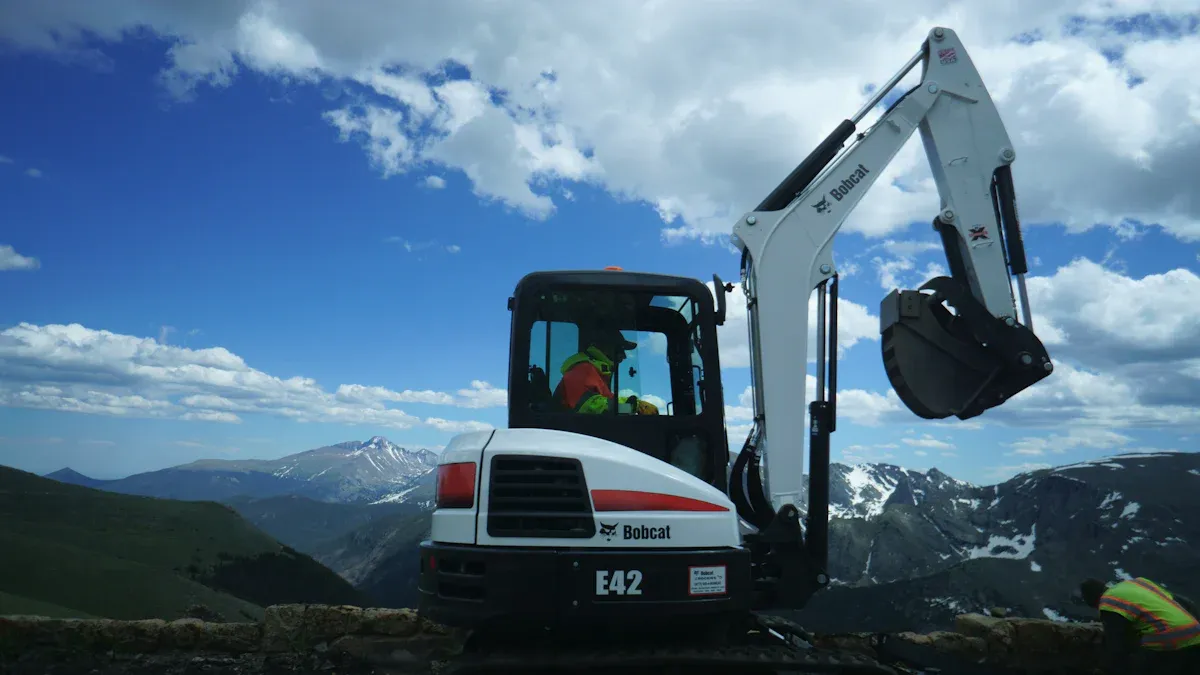
Homeowner Scenarios
You want to tackle landscaping, trenching, or small construction projects at home. You face a choice: buy a mini excavator or rent one for each project. Let’s break down the numbers so you can make the smartest decision for your wallet.
Renting a mini excavator gives you flexibility and keeps your upfront cost low. Most homeowners rent a compact excavator two or three times a year. The average rental price falls between $250 and $400 per day, or $900 to $1,250 per week. If you rent for a weekend project, you might spend $700 to $800 each time. Over ten years, your total rental cost could reach $25,000 if you rent two or three times per year.
Buying a mini excavator means you pay a higher price at the start. A typical purchase price for a reliable model with attachments is about $50,000. You gain 24/7 access and can use it for any project, any time. You also add value with attachments, which can save you $5,000 per year in rental value if you use them often.
Here’s a quick comparison:
Cost Aspect | Renting Mini Excavator | Buying Mini Excavator (with Attachments) |
|---|---|---|
Daily Rental Cost | $250 – $400 | N/A |
Weekly Rental Cost | $900 – $1,250 | N/A |
Monthly Rental Cost | $2,000 – $2,500 | N/A |
Typical Use Frequency | 2–3 times/year | Unlimited |
10-Year Total Rental Cost | ~$25,000 | N/A |
Purchase Price | N/A | ~$50,000 |
Value from Attachments | N/A | ~$5,000/year |
Resale Value | N/A | 50–100% of investment possible |
Maintenance & Operating Costs | Included in rental | Owner responsible |
🏡 Tip: If you only need a mini excavator for a few projects each year, renting keeps your costs low and avoids maintenance headaches. If you plan to use it often, buying can pay off in the long run, especially if you resell the machine later.
Small Business Scenarios
You run a landscaping, construction, or property maintenance business. Your equipment choices affect your bottom line. Should you buy a mini excavator or keep renting for every job? Let’s compare the real numbers.
Renting works well for short-term or seasonal jobs. You pay $300 to $650 per day, $800 to $1,500 per week, or $2,000 to $3,000 per month. If you rent a compact excavator for 12 weeks each year, your annual rental cost could reach $15,000. You avoid repair bills and only pay for the time you use the machine.
Buying a mini excavator requires a bigger upfront investment. Most small businesses pay $30,000 to $90,000 for a new model, or $10,000 to $50,000 for a used one. You also need to budget for operating costs—about $24 per hour for fuel, maintenance, and repairs. If you hire an operator, add $33.20 per hour. Over five years, your total cost of ownership can be much lower than renting if you use the excavator regularly.
Here’s a side-by-side look:
Factor | Renting Mini Excavator | Buying Mini Excavator |
|---|---|---|
Upfront Cost | Low ($800–$3,000 per job) | High ($30,000–$90,000 new; $10,000–$50,000 used) |
Annual Rental Cost (12 weeks) | ~$15,000 | N/A |
Operating Costs | Included in rental | ~$24/hour (plus operator if needed) |
Usage Flexibility | Limited to rental period | 24/7 access |
Maintenance Responsibility | Rental company | Owner |
Resale Value | N/A | 50–100% of purchase price possible |
Total Cost Over 5 Years | ~$75,000 (if rented often) | Often lower if used regularly |
💼 Note: If your business uses a mini excavator for many projects each year, buying gives you more control and can lower your total cost. You also build equity in your equipment and can resell it later. If your work is seasonal or unpredictable, renting keeps your cash flow strong and eliminates repair worries.
You need to weigh your project frequency, budget, and long-term plans. If you want the lowest price for occasional use, renting wins. If you want the best value for frequent jobs, buying a mini excavator delivers more savings over time.
Buying and Renting Decision
Decision Criteria
You want to make the smartest choice for your next project. Start by looking at how often you need an excavator. Renting works best for short-term or rare jobs. If you only need a mini excavator for a week or two, renting keeps your price low and avoids storage headaches. Buying becomes the cost-effective option when you use the machine often or for long-term projects. You save money over time and gain full control.
Think about your budget. Renting has a lower upfront cost, so you avoid a big purchase all at once. If you have space for storage and can handle maintenance, buying gives you more freedom. You also get to pick attachments that fit your needs. If you need special tools or plan to modify your excavator, owning makes sense.
Here’s a quick checklist to help you decide:
Need for short-term or infrequent use? Rent.
Plan to use the excavator regularly? Buy.
Tight budget or no storage? Rent.
Want custom attachments or long-term savings? Buy.
Remember: A one-week project usually favors renting, but regular use by a business points to buying as the cost-effective solution.
Money-Saving Tips
You can lower your costs with smart planning. Use these proven strategies to keep more money in your pocket:
Explore financing options like leasing or vendor loans. These plans reduce your upfront price and offer flexible payments.
Choose the right size and model for your job. Avoid paying extra for more capacity than you need.
Compare rental companies. Local suppliers often have lower delivery fees, while national chains may offer better rates for long-term rentals.
Negotiate rental terms. Ask for discounts on longer rentals or when renting multiple machines.
Plan ahead. Early reservations help you avoid last-minute price hikes and limited availability.
Bundle services. Renting equipment, delivery, and an operator together can cut total costs by up to 20%.
Review all fees. Understand delivery, insurance, and fuel charges before you sign.
Mini excavators already offer lower base prices, fuel, and insurance costs compared to larger machines. You get a cost-effective option for small jobs and save even more by following these tips.
You face a big decision when choosing between renting or buying a cheap mini excavator. Renting covers most costs like maintenance and insurance, making it smart for short projects. Buying a mini excavator means a higher upfront cost, but you gain full control, lower long-term costs, and possible tax benefits. Compare your project size, frequency, and budget before you decide. Use this table to see the main cost differences:
Cost Aspect | Renting | Buying |
|---|---|---|
Upfront Cost | Low | High |
Maintenance/Insurance | Included | Owner pays |
Long-Term Savings | No | Yes |
Review your total costs and use the tips above to make the best choice for your next excavator project.


